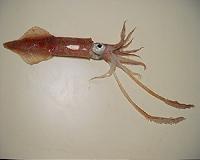 |
Nagoya, Japan (AFP) Oct 27, 2010 One fifth of the world's vertebrates are threatened with extinction but conservation efforts are having an impact in slowing their demise, scientists said in a study published Wednesday. The study reported that the main reason for the "alarming" decline in the world's mammals, birds, amphibians, reptiles and fish was the destruction of their natural habitats. "Global patterns of rising extinction risk are most marked in Southeast Asia, where agricultural expansion, logging and hunting are the primary forces behind accelerating extinction rates," a summary of the study said. The study, by 174 scientists around the world, was described as the first time the rate of decline among vertebrate species had been quantified on a global scale. It was based on research into 25,000 species on the International Union for the Conservation of Nature's (IUCN's) "Red List" of threatened species. IUCN members were due to discuss the findings of the research on Wednesday on the sidelines of a United Nations summit being held in the Japanese city of Nagoya to try to map out a plan to slow or stop the decrease in the world's biodiversity. The summit is being held amid the backdrop of warnings from scientists that humans' destruction of nature is causing plant and animal species to become extinct at up to 1,000 times the natural rate. The IUCN said last year the world was experiencing its sixth mass extinction in history, the last one being 65 million years ago when dinosaurs were wiped off the planet. However the study published Wednesday said species loss and decline would have been 20 percent worse in the absence of conservation efforts to protect threatened species. "Thus, while current conservation efforts remain insufficient to offset the main drivers of biodiversity loss... targeted conservation efforts have had a measurable positive impact on the planet's vertebrate species," the study said. Some of the conservation strategies the study highlighted as being beneficial were captive breeding programmes, legislation to limit hunting, establishing protected areas and efforts to remove invasive alien species.
Share This Article With Planet Earth
Related Links Darwin Today At TerraDaily.com
 Squid Studies Provide Valuable Insights Into Hearing Mechanisms
Squid Studies Provide Valuable Insights Into Hearing MechanismsFalmouth MA (SPX) Oct 27, 2010 The ordinary squid, Loligo pealii - best known until now as a kind of floating buffet for just about any fish in the sea - may be on the verge of becoming a scientific superstar, providing clues about the origin and evolution of the sense of hearing. In a hangar-like research building at the Woods Hole Oceanographic Institution (WHOI), biologist T. Aran Mooney is exploring virtually unchar ... read more |
|
| The content herein, unless otherwise known to be public domain, are Copyright 1995-2010 - SpaceDaily. AFP and UPI Wire Stories are copyright Agence France-Presse and United Press International. ESA Portal Reports are copyright European Space Agency. All NASA sourced material is public domain. Additional copyrights may apply in whole or part to other bona fide parties. Advertising does not imply endorsement,agreement or approval of any opinions, statements or information provided by SpaceDaily on any Web page published or hosted by SpaceDaily. Privacy Statement |